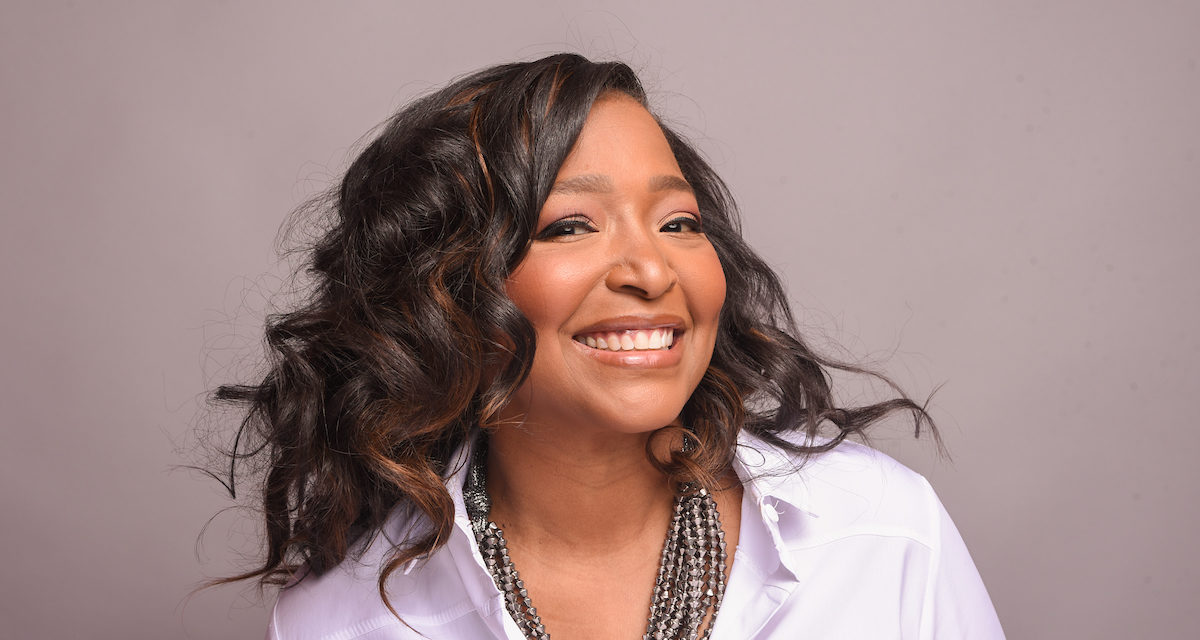Leslie Davis is an accomplished attorney in Chicago who recently was named the incoming CEO of the National Association of Minority and Women Owned Law Firms. Her efforts for social justice are exceptional, which is why she is our Apex of Leadership Award Winner.
Attorney Leslie Davis has been a champion for equality, diversity, and equity in the workplace for more than twenty-five years. Now she is taking her efforts to a new level as the incoming chief executive officer of the National Association of Minority and Women Owned Law Firms, also known as NAMWOLF.
“I will be primarily responsible for making sure our member law firms, minority, women owned law firms are paired with and given opportunities to meet and work with and do work for major corporations, public institutions and really make sure they get the fair share of the legal spin that they really should have and should have had for years. So that will be my full focus,” Davis explained.
The work that Davis is taking on is something she is very passionate about. You can see her face light up when she speaks about making a difference in the world of law and corporate America.
“As a black woman, a double minority in some respects, I have been NAMWOLF adjacent my whole career. I have been fighting for the same rights that NAMWOLF fights for – equity and equality and for fairness. I’ve been doing that since the day I started practicing and while I had not been intricately involved in NAMWOLF, I certainly understood the work of NAMWOLF,” Davis said.
There will be challenges ahead, but Davis is ready to take them on as she steps into her new role.
“Our outgoing CEO, Joel Stern, has been a major champion, and he’s not a woman or a minority, but he has been a major champion and has really made great strides with the organization for several years just making sure that people who look just like him understand the value of NAMWOLF and in general not just the value of hiring minority and women lawyers but the value of really understanding and embracing what it means to have diversity and equity and inclusion,” David noted.
“So, it’s not just checking a box, but it’s embracing the differences and using those to have a bigger perspective, a better perspective, a more robust conversation around any issue, especially legal issues but around any issues, and so that is what I think is what needs to happen is that everybody needs to be more thoughtful and more specific and intentional about what they can do and what they are doing to make sure that the legal profession and society, in general, is more inclusive than what it currently is,” she explained.
Davis brings a wealth of experience, both domestic and global, to the position as a successful law firm partner and litigator. She has been a key member of several civic, health, and educational boards in addition to serving as a Commissioner for the City of Chicago Community Development Commission. Her reputation is stellar. She is known for her dynamic personality and straightforward approaches.
Her leadership skills also set her apart from others. Davis, who earned three degrees at the University of Iowa (B.A., M.A., J.D., Mass Communications and Law), grew up in a household where she was surrounded by strong parents. Her mom was a professional in the insurance industry, and her dad was a retired military officer who would go on to work at the United States Postal Service. Davis said her leadership comes from being raised in a close-knit family unit.
“I had to be a leader from the very beginning because I was the only child and the only grandchild so and I had very strong leadership models: my mom, my father, my grandmother, and so I guess I didn’t know there was another way to be, besides being specific and intentional and in charge and ready and able because that was what I saw growing up,” she noted.
“Everybody was kind of on-point doing what they needed to do, and so it wasn’t until much later that I recognized – not everybody functions in that way, and some people take the back seat, and some people sit passively by and don’t get in the game,” she added. “And so, by the time I recognized that was an option, that’s not who I was at that point.”
Davis describes her childhood as one that was always centered around family. In addition to Davis’ parents, her grandmother, a retired teacher, played an important role in Davis’ character building by sharing with her an important idea. Her grandmother called it the “mountain top standard.”
“What that means is if you would be embarrassed, ashamed, sad, humiliated if it was shouted from the mountain top, then don’t say it. Don’t write it. Don’t act in that way,” Davis recalled.
“In her mind, don’t even think in that way.”
Her grandmother’s wisdom has been a guide Davis has followed throughout her professional career.
“And that is how I think I have continued to gain support, and people have confidence in me and my abilities because they know how I’m going to show up,” she added.
In addition to showcasing her integrity at work, Davis also has tried to make a difference paving the way for others who follow in her footsteps. She has enjoyed mentoring those she’s worked with, and she’s tried to make a difference so they don’t have to face the obstacles she often endured in the workplace.
“As I became more senior and I was demanding a seat at the table and wanting and really deserving of more of a role where I was the relationship partner, I was getting the credit that other people had been getting for bringing in work and things like that.
“And being told that, no, I wasn’t going to be getting that credit or that what I was doing was an introduction or secondary to what others were doing that were my white counterparts. Those things were more hurtful and more painful because my hands felt tied. Because there’s nothing that I could really do about it,” she said. “I understood better why so many of the women and minorities who had come before me had given up and have said, ‘I don’t want to do this anymore.’”
Davis did have influential people in her corner. One of her early mentors was a partner in the law firm, Sonnenschein Nath & Rosenthal LLP (today is known as SNR Denton), Rob Johnson. He was able to give Davis substantial advice on the legal world and having a successful career in the industry. Johnson’s wife, Gloria, had been a partner in the firm who stepped away from her law practice to raise their family. She was also someone Davis often leaned on for advice. Gloria, like her husband, encouraged Davis to never give up and was pivotal in her success.
Davis learned that nurturing relationships such as these would be crucial to her career. Naturally, building relationships is vital to be an effective attorney, and it’s especially important for a litigation lawyer.
Today, in her new position, Davis will be initiating many conversations to help improve those opportunities for women and minorities. As she reflects on the troubled times our country has endured recently, she is hopeful these conversations will make a difference.
“There is a way to come together and move the agenda forward for the betterment of everybody for the whole country for everybody in it and for the future generations there are ways to do that even when you disagree,” Davis said. “I think that’s one of the things that will be entirely necessary as we move forward is that everybody has to just be honest to where we’re at. We’re not in a colorblind society; we’re not in a situation where women are being treated equally. We’re not in a situation where anybody can really just turn a blind eye to all of the injustice and the poor treatment that we see for anybody who is different, and that’s important.”
It’s also important for Davis to ensure that her own two children have it better than she did.
“I would really like to see that change for the next generation. And so, for me, it’s personal. It’s very personal,” Davis admitted. “Not just [because] I am a black woman but because I recognize that for the next generation and the generation after that and the generation after that, if we don’t solve some of these ongoing problems that we’ve had for hundreds of years, then we will keep repeating the vicious cycle, and we don’t really fully get ahead, and that would be sad. That would be a very disappointing epitaph on my life [and on] my career, and I don’t want that.”
For more information, visit www.namwolf.org.
Photo credit: Rodney Wright from Image Makers Photography


 CLICK HERE
CLICK HERE
